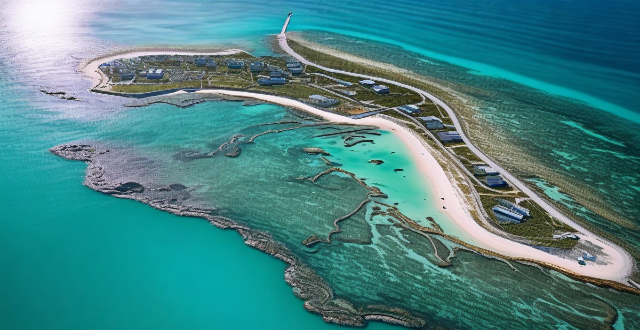Marine biodiversity is threatened by ocean acidification and warming, which can have significant impacts on the ocean's ecosystems. Ocean acidification reduces the availability of carbonate ions, making it harder for calcifying organisms to build their shells or skeletons, leading to weaker structures or death. It also changes food webs as key species become less available as a food source. Ocean warming causes changes in species distribution and potential new interactions between species that did not previously overlap. Coral bleaching events occur when waters become too warm, making corals more susceptible to disease and potentially causing them to die off. Warmer waters can also lead to the loss of important habitats for certain species like polar bears. Taking action to reduce greenhouse gas emissions and protect the ocean's delicate balance is essential to preserve marine biodiversity for future generations.

Impact of Ocean Acidification and Warming on Marine Biodiversity
Marine biodiversity is the variety of life in the oceans, including plants, animals, and microorganisms. It is essential for maintaining the health and functioning of marine ecosystems. However, ocean acidification and warming are two major threats to marine biodiversity that can have significant impacts on the ocean's ecosystems.
Ocean Acidification
Ocean acidification refers to the ongoing decrease in the pH of the Earth's oceans, caused by the uptake of carbon dioxide from the atmosphere. This process makes the oceans more acidic and has several impacts on marine biodiversity.
Impacts on Calcifying Organisms
Many marine organisms, such as corals, mollusks, and some planktonic species, rely on calcium carbonate to build their shells or skeletons. As the ocean becomes more acidic, it reduces the availability of carbonate ions, making it harder for these organisms to build their structures. This can lead to weaker shells or even death if they cannot build their protective structures.
Changes in Food Webs
As some species are affected by ocean acidification, it can lead to changes in the food web. For example, if a key species like a mollusk is unable to build its shell, it may become less available as a food source for other species. This can have cascading effects on the entire food web.
Ocean Warming
Ocean warming refers to the increase in temperature of the Earth's oceans, primarily caused by human activities such as burning fossil fuels and deforestation. This warming trend has several impacts on marine biodiversity.
Changes in Distribution
As waters warm, some species may move to cooler areas where conditions are more suitable for them. This can lead to changes in the distribution of species and potentially new interactions between species that did not previously overlap.
Coral Bleaching
Coral reefs are highly sensitive to temperature changes and can experience bleaching events when waters become too warm. During a bleaching event, corals expel their symbiotic algae, which provide them with nutrients and color. Without these algae, corals become more susceptible to disease and may die off.
Loss of Habitat
Warmer waters can also lead to the loss of important habitats for certain species. For example, polar bears rely on sea ice as a platform for hunting seals. As temperatures rise and sea ice melts earlier in the year, polar bears have less time to hunt and may struggle to find enough food.
In conclusion, both ocean acidification and warming have significant impacts on marine biodiversity. These impacts include changes in distribution, loss of habitat, and direct harm to certain species through processes like coral bleaching and reduced calcification ability. It is essential that we take action to reduce our greenhouse gas emissions and protect our oceans' delicate balance to preserve marine biodiversity for future generations.